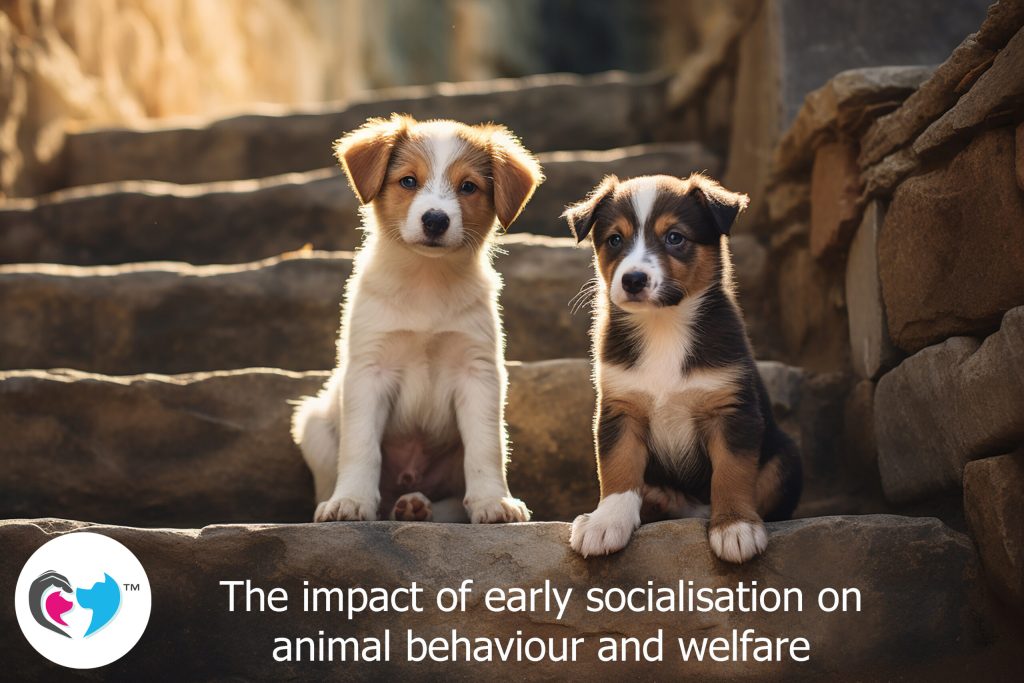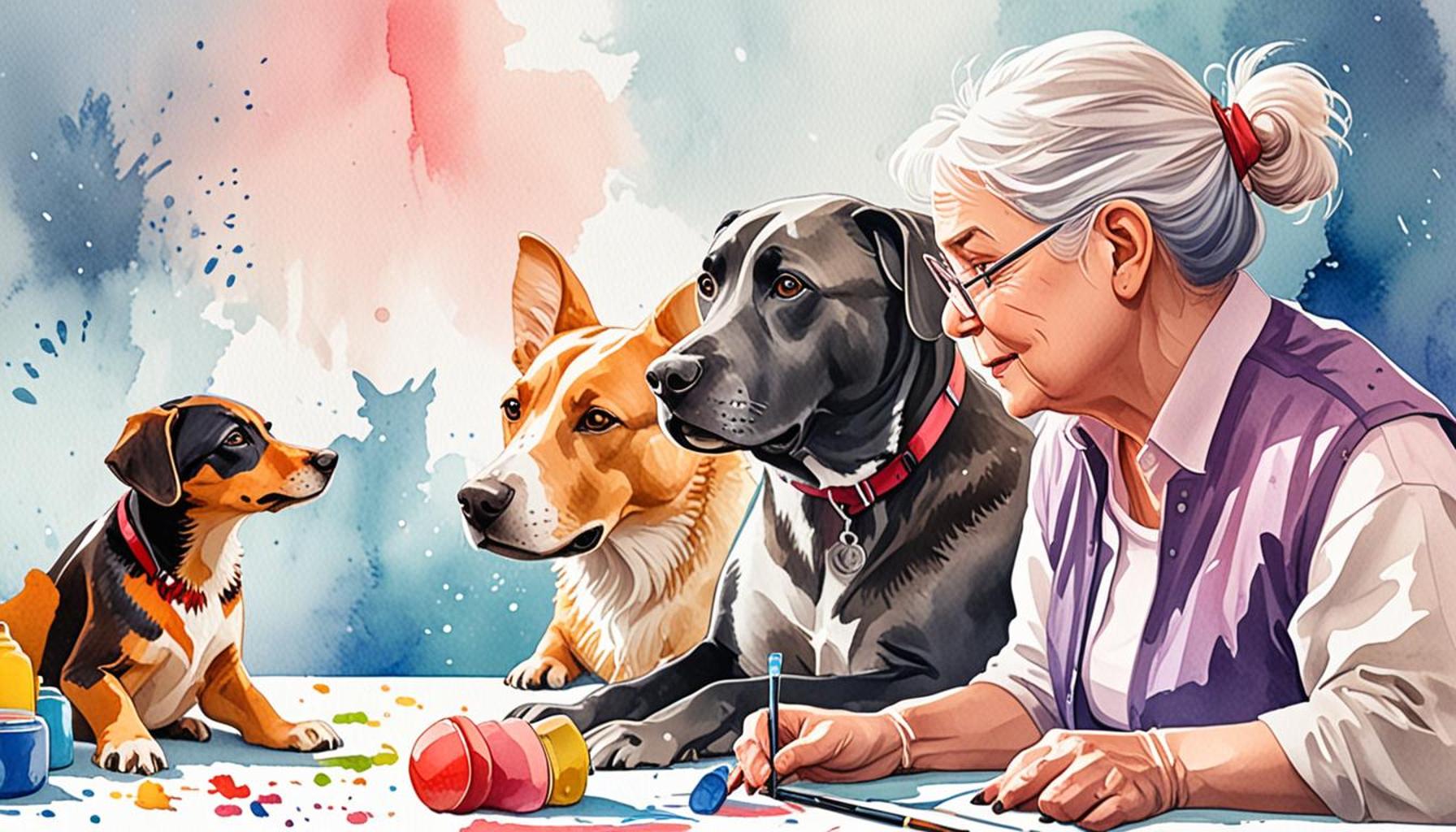The Impact of Group Training on Pet Socialization

Understanding Group Training for Pets
Group training is not merely focused on teaching commands to your pet; it unfolds as a vital opportunity for enhanced socialization. Many pet owners remain unaware of how this training format can reshape their pets’ behaviors and enhance their interactions with both humans and other animals. By engaging in group classes, dogs and their owners can not only develop essential skills but also deepen the bond they share, laying a foundation for a happier and healthier relationship.
Benefits of Group Training
Participating in group training sessions offers numerous advantages that extend beyond mere command recognition. The advantages include:
- Exposure to Diverse Environments: In a group setting, pets are exposed to a variety of stimuli—different sounds, sights, and even scents that they might not encounter in a more isolated training environment. This exposure can help them adapt better to public places, parks, or other social gatherings.
- Improved Confidence: Group training assists pets in navigating social interactions, helping to alleviate fear and anxiety. For instance, a timid dog might learn to be more comfortable around strangers or other dogs by observing their peers’ confident behaviors, ultimately developing his own self-assurance.
- Owner Interaction: Group classes pave the way for improved communication between pets and their owners. They encourage owners to learn more about their pets’ body language and reactions, fostering a strong, communicative bond. This is particularly beneficial in understanding why a dog may act out in specific situations.
Socialization Opportunities
Group training creates a dynamic environment where pets can interact, providing them with essential socialization experiences. Key elements to consider include:
- Learning from Peers: Pets have a natural tendency to observe and mimic others. In a group context, a shy dog might begin to adopt the more playful or confident behaviors of their companions, facilitating behavioral growth.
- Playtime: Engaging in structured play not only promotes social skills but also offers a safe environment for pets to learn how to appropriately interact with others. For example, supervised play sessions can teach dogs how to share toys or take turns, skills that are crucial in establishing respectful social boundaries.
- Exposure to Different Breeds: Interaction with various breeds can help pets and their owners better understand general canine behavior and the nuances of each breed’s characteristics. This understanding minimizes miscommunication and promotes better social interactions.
As pet owners strive to cultivate well-adjusted companions, group training emerges as a critical tool in the quest for successful pet socialization. Recognizing these impactful benefits can result in a happier pet and, consequently, a more harmonious household. By prioritizing group training, you not only invest in your pet’s behavioral development but also create enriching experiences that contribute to their overall well-being.
DISCOVER MORE: Click here to learn about the impact of socialization on pets

Transformative Advantages of Group Training
Group training has significant implications for pet socialization, a critical aspect of raising well-adjusted animals. In today’s bustling society, where pets frequently accompany their owners to restaurants, parks, and community events, strong social skills are essential. Group training not only helps pets acquire basic obedience but also equips them with the necessary tools to interact positively with their environment. Such interactions can reduce behavioral issues that stem from fear or aggression, leading to a more harmonious coexistence between pets, their owners, and the community.
Building Essential Social Skills
Through group training, pets engage in a shared learning experience, which is paramount in developing essential social skills. Here are several critical benefits of participating in these sessions:
- Structured Social Interactions: Group classes provide pets with a framework to learn how to engage with others appropriately. This setting allows for interaction with both humans and other animals in a controlled environment, minimizing the risk of overwhelming experiences. Over time, pets become accustomed to the sounds, movements, and activities associated with various social situations.
- Conflict Resolution: In social scenarios, conflicts may arise among pets. Group training often incorporates techniques that allow animals to face challenges collectively, teaching them valuable conflict resolution and negotiation skills. For instance, a puppy learning to handle disputes over toys with other dogs can become better equipped to resolve such issues in everyday life.
- Positive Reinforcement of Good Behavior: With multiple pets around, owners can demonstrate the effectiveness of positive reinforcement as they watch their peers receive praise and rewards for their good behavior. This collective learning encourages similar actions within their own pets, fostering goodwill.
Encouraging Adaptability and Resilience
The dynamic nature of group training encourages pets to become more adaptable and resilient. Recognizing how different animals respond to various situations prepares them for real-world encounters. This adaptability plays a crucial role, especially for rescue animals or those with previous negative experiences. A few additional advantages include:
- Desensitization to New Experiences: Group training introduces pets to unfamiliar stimuli in a safe manner. For example, they may hear various noises or encounter different types of human behavior—elements that might otherwise provoke anxiety. As pets face these situations repeatedly within the supportive confines of group classes, their overall comfort with novel experiences increases.
- Enhanced Communication Skills: The presence of multiple animals and owners aids pets in learning subtle cues from their peers. This understanding of canine body language fosters better communication abilities, allowing pets to express their feelings confidently and appropriately.
- Foundation for Lifelong Learning: Group training reinforces the idea that learning is a continuous process. As pets grow and are exposed to new environments throughout their lives, the skills developed through group sessions lay the groundwork for ongoing behavioral growth and adaptability.
The profound impact of group training on pet socialization cannot be understated. Beyond the immediate advantages of enhanced obedience, group training cultivates a myriad of skills that promote mental well-being and healthy behaviors. In investing time in this shared training experience, pet owners significantly improve their pets’ social capabilities, leading to brighter days ahead for both pets and their families.
| Advantage | Description |
|---|---|
| Improved Social Skills | Group training exposes pets to various animals, fostering communication and reducing anxiety in social settings. |
| Enhanced Focus and Concentration | Training in a group environment sharpens pets’ focus, making them more responsive to commands amidst distractions. |
| Strengthened Bond with Owners | Group activities encourage teamwork and communication, enhancing the bond between pets and their owners. |
The impact of group training on pet socialization cannot be overstated, as it plays a pivotal role in developing a well-rounded and emotionally balanced pet. Engaging in a structured social environment allows pets to learn vital skills for interacting with others, both animal and human alike. In particularly well-structured classes, pets not only practice basic commands but also learn to cope with new experiences that can translate into confidence outside of the training setting. Moreover, group training minimizes behavioral problems often observed in pets that lack socialization, such as excessive barking or aggression. Through consistent exposure to various breeds and temperaments, pets adjust their social responses and learn constructive behaviors in a controlled, yet stimulating environment. Such environments help alleviate fears and hesitations, equipping pets with the tools required for successful interactions in public spaces. The benefits can be further observed in the long term, as pets maintain better emotional health and adaptability to new situations throughout their lives.
DISCOVER MORE: Click here to learn about inspiring success stories
Fostering Community and Support Networks
In addition to the skills and behaviors pets develop, group training sessions create a sense of community for both pet owners and their furry companions. This social component adds an exciting layer to the training experience, as it not only benefits the pets but also strengthens the bond between owners and their pets, fostering long-term camaraderie. The social dynamics in these environments can lead to several noteworthy advantages:
Building Relationships Among Pet Owners
Group training classes serve as a meeting ground for pet owners, enabling them to share experiences, tips, and advice. This communal aspect enhances the overall training experience and provides emotional support. By forging relationships, owners can:
- Exchange Knowledge: Many owners come to the training with their unique backgrounds, making it an excellent opportunity for exchanging insights into effective training techniques or tips on managing common behavioral issues.
- Participate in Local Events: Group training often extends beyond the classroom. These gatherings can blossom into friendships that lead to playdates, community events, or training workshops, fostering an enriching social environment for pets and their owners.
- Create Support Systems: A community of fellow pet owners can offer emotional encouragement, particularly for new pet parents navigating the challenges of training. This support network can alleviate feelings of isolation that pet owners sometimes experience.
Encouraging Positive Engagement with the Community
Group training does more than improve individual pet behaviors; it often allows owners to set examples of responsible pet ownership. As pets learn to behave appropriately in public settings, owners can feel confident in showcasing their well-mannered companions. This positive engagement has broader community benefits:
- Community Acceptance: Pets that are well-socialized are more likely to be welcomed in public spaces, creating a culture of acceptance. Group training contributes to breaking down barriers between pets and society, leading to safer and more enjoyable experiences for everyone.
- Reducing Incidents of Aggression: In many communities, fear of aggressive behavior from dogs can lead to restrictions on where pets are permitted. By encouraging responsible behavior through group training, communities may experience reduced incidents of aggression, ultimately promoting a more harmonious environment.
- Inspiring Community Involvement: Organized group classes can inspire community initiatives, such as local dog parks, pet festivals, or charity events focused on animal welfare. These activities further strengthen the bond among residents and their pets, contributing to a pet-friendly culture.
Cultivating Lifelong Bonds
Perhaps one of the most profound impacts of group training is its role in nurturing lifelong bonds between pets and their owners. Training sessions cultivate trust and understanding, creating connections built on positive experiences. Consider the following:
- Strengthening Human-Animal Relationships: Engaging in training activities allows pets to see their owners as leaders, providing a sense of security. This bond promotes cooperation, as pets learn to respond to commands and cues from their owners.
- Emotional Well-Being: Pets that receive consistent training and socialization are often more emotionally resilient. A well-adjusted pet translates to a happier home environment, positively affecting both owners and pets.
- Enriching Quality of Life: Ultimately, well-socialized pets are equipped to participate in various activities with their owners. Whether it’s attending social gatherings, going for hikes, or simply visiting the local cafe, these shared experiences enrich the quality of life for both pets and their families.
The communal aspect of group training is as essential as the skills learned within its parameters. By fostering friendships and promoting responsible pet ownership, these sessions contribute to a socially aware pet culture, ultimately benefiting both pets and the wider community. With every wag of a tail and playful bark in those classes, the ripple effect of group training on pet socialization becomes increasingly apparent.
DISCOVER MORE: Click here to learn about breed characteristics and pet behavior
Conclusion: The Transformative Power of Group Training
In conclusion, group training serves as a pivotal element in the socialization and behavioral development of pets. By bringing together animals and their owners, these sessions foster an environment where not only skills are honed, but also vital social interactions are forged. The communal atmosphere enhances the overall training experience, offering an invaluable support network that extends beyond the classroom. This development of relationships among pet owners encourages the sharing of knowledge and resources, creating a vibrant community committed to responsible pet ownership.
Moreover, as pets learn to navigate various social situations, their behavior positively influences public perception, promoting acceptance and safety in shared spaces. Well-socialized pets contribute to a more harmonious community atmosphere, potentially reducing incidents of aggression and poor behavior. The cascading effects of group training ripple through neighborhoods and create positive cultural shifts toward pet ownership.
Ultimately, the cultivation of trust and emotional bonds between pets and their owners is paramount. Group training enriches the quality of life for both, opening doors to shared experiences that deepen relationships. As a result, investing time in such training not only benefits individual pets but also enriches the broader community landscape. For anyone considering pet training options, group sessions provide a dynamic, supportive, and effective pathway toward a well-socialized and harmonious companion.



